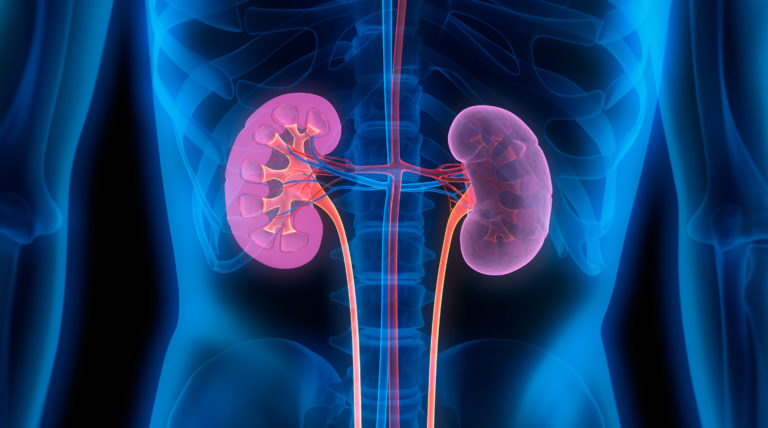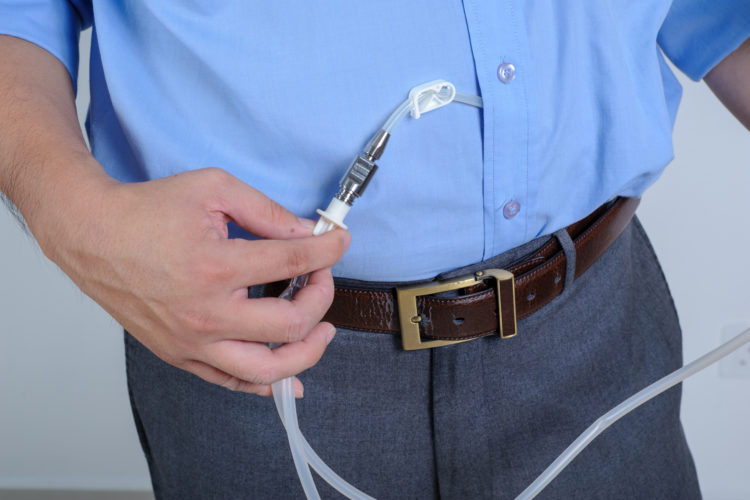
The ideal treatment for patients with end-stage renal disease is kidney transplantation because it offers patients an independent life that is free from dialysis. The Rogosin Institute performed New York State’s first living donor kidney transplant in 1963 and its first deceased donor transplant in 1965. The Rogosin Institute’s Immunogenetics and Transplantation Laboratory was the first in the New York Metropolitan Area that made it possible to match organs and allow more people to receive kidney transplants.
“From the first living donor kidney transplant at NYP/Cornell in 1963, Rogosin has pioneered the field of transplantation. Our active participation in kidney exchange for those with incompatible donors has helped propel us to being one of the most active transplant centers in the country. Our approach has always been to make our patients active members of the transplant team.”
The Rogosin Institute’s Transplant program is world-renowned and is carried out in collaboration with New York-Presbyterian/Weill Cornell and provides kidney and pancreas transplantation to both adults and children. Our one-year kidney survival rates are excellent at over 90 %. Transplantation surgery is performed at New York-Presbyterian/Weill Cornell, with Rogosin’s transplant nephrologists managing the medical care of transplant patients before and after transplant surgery. Patients are an important part of the transplant team that includes nephrologists, surgeons, immunologists, nurses, pharmacists, technologists, social workers, dietitians, and financial counselors.
What is a Kidney Transplant?

Kidney transplant is one of two types of treatment for kidney failure (dialysis is the other). Getting a kidney transplant means having a healthy kidney placed inside the body to perform the functions the native kidney can no longer do.
There are advantages and disadvantages to a kidney transplant. On the one hand, compared to dialysis, a kidney transplant permits patients to enjoy relatively normal dietary habits. General health and energy are expected to improve once the new kidney is functional. Studies also suggest that kidney transplant surgery extends lifespan longer than continual dialysis. On the other hand, kidney transplant surgery carries risks. Patients must take anti-rejection medication for the life of the new kidney. The risk of infection is also higher.
Kidney Transplant Candidates
Patients of all ages may be good candidates for a kidney transplant. Ideal candidates are healthy enough to undergo surgery. Each must be free of cancer and infection. Before kidney transplant surgery, patients undergo a thorough medical and psychological assessment to ensure they can tolerate the physical and emotional aspects of this process. In some situations, patients may be advised to take measures that will improve the chances of success. For example, a patient may be asked to quit smoking or lose weight.
The Rogosin Institute and NYP/Weill Cornell make every effort to help patients who want and qualify for transplantation, receive a successful kidney transplant. Our goal is to offer improved quality of life to all kidney patients. You must meet certain basic criteria in order to be considered for a potential kidney transplant and be fully evaluated by the transplant team to determine if transplantation is the best treatment option. Transplant coordinators help guide you through the evaluation process.
If transplantation is the best option for you, we work with you to determine the best approach. Patients who have already identified a kidney donor and are considered appropriate for a kidney transplant will work with the coordinator and team to schedule the transplant surgery. If you have identified a potential donor who is incompatible with you, we work with various donor exchange programs affiliated with the transplant program to identify a paired donation. Through the kidney paired exchanges, The Rogosin Institute’s transplant program, in cooperation with NYP/Weill Cornell, has helped facilitate 20% more transplants through kidney paired exchanges. Working with the National Kidney Registry to find and match donors with patients needing a transplant, we participated in the largest exchange ever – 30 transplants – and helped pioneer transplantation of living donor kidneys from coast to coast and improve life expectancy after a kidney transplant.
What are the Different Forms of a Kidney Transplant?

A kidney transplant involves several potential options:
- A living donation, in which the patient chooses a kidney donor among potential matches.
- A deceased donation, for which the patient is added to a waiting list for organ donor matches.
- A preemptive kidney transplant is scheduled before dialysis is needed.
- Early kidney transplant occurs shortly after dialysis has begun.
Having a kidney transplant is a deeply personal decision. The team at the world-renowned Rogosin Institute’s Transplant program assists patients by providing caring support and detailed information. Our diagnostic phase of treatment enables us to plan for the best possible patient outcomes.
How Do I Prepare for a Kidney Transplant?
Kidney transplant surgery is approached with the assistance of multiple healthcare providers, including an experienced transplant team. Once a donor type is selected, the best way for a patient to prepare for their transplant is to make healthy lifestyle choices.
- A healthy diet supports physiological functions that improve post-operative healing.
- Avoidance of nicotine and tobacco products is essential to surgical preparation. Smoking significantly increases the risk of surgical complications, including poor wound healing.
- Plan for recovery. Patients cannot drive, lift, or bend for a few weeks after surgery. Assistance will be needed for cooking, childcare, and also personal care.
- Patients are encouraged to write down their questions and bring that list to their preoperative visits.
Kidney Transplant Procedure
A kidney transplant is a process. Before surgery, a complete physical exam is performed along with a thorough health history. Tests such as x-rays and bloodwork may be performed to collect data regarding overall health and assess all factors that could influence treatment success.
If a living donor is selected, that person will also undergo a very thorough screening process to determine if they are a match and in good enough health to donate.
Kidney transplant surgery is performed in the hospital with general anesthesia. After making an incision in the lower abdomen, the surgeon places the donated kidney in the pelvic area, where blood vessels and a stent to the bladder can be easily connected. The new kidney’s ureter is connected to the bladder, and blood vessels are connected to those in the lower abdomen.
How Long Does a Kidney Transplant Take?
A Kidney Transplant surgery is often completed in 3 hours but may take as long as 5 hours. Patients are under general anesthesia and remain in a deep sleep for the duration of the procedure.
What Does the Recovery Process Look Like?
After a kidney transplant, patients spend 5 days in the hospital. Urine output in the new kidney may begin immediately or may take several days. If this does not occur quickly, temporary dialysis may be needed until the new kidney begins to function.

Patients can expect pain at their incision site and general soreness after surgery. However, nursing staff assists patients with getting out of bed as early as the next day. While in the hospital, patients are observed by staff for signs of complications. Follow-up care continues after discharge and may include weekly visits with a member of the transplant team for a time, and then a personal nephrologist. Blood tests may also be performed a few times a week. As needed, medications may be adjusted as well.
When discharged from the hospital, patients will be given post-surgical instructions that outline details such as how to care for incisions and what activities they can perform. For the first six weeks of recovery, lifting is limited to objects no heavier than 10 pounds. By eight weeks after surgery, most patients are able to return to work.
What Our Patients Have to Say
“I have been a patient since 2005. I had a kidney transplant in 2006. The staff is amazing and caring, in all my ups and downs they’ve extended extreme support. Love them all dearly! They’re the BEST!!!” -Abigail C.
How Long Does a Kidney Transplant Last?
Most transplanted kidneys function well for many years. The amount of time a new kidney lasts can vary from one person to another. In many cases, additional kidney transplants are needed in a patient’s lifetime.
What Happens to the Old Kidney?
Typically, the original kidney is left in place rather than removed. The new kidney is positioned in the abdominal cavity near the groin. The old kidney is left intact because removing it is complicated and usually not necessary.
If you do not have a donor
We encourage you to register for a deceased donor transplant at the NYP/Weill Cornell Program in cooperation with The Rogosin Institute.
Rogosin Institute Active Involvement
The Rogosin Institute has been actively involved in the development of immunosuppressive medications, including some of the earliest studies. These are the medications to help prevent rejection of the transplanted organ. Rogosin continues to improve treatments for transplant patients by driving advances in treatment protocols to decrease the need for these medications and to improve our already stellar transplant success rates.
Schedule a Consultation
To schedule a consultation or to learn more about our Kidney Transplant program, contact us today at 888-ROGOSIN or NYP/Weill Cornell Transplant Team at 212.746.3099. Our practice serves New York and the surrounding areas. Our transplant program serves people from all over the world.
